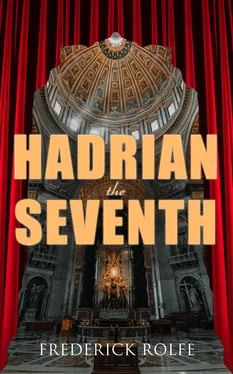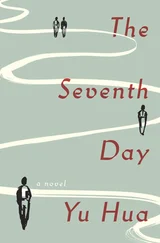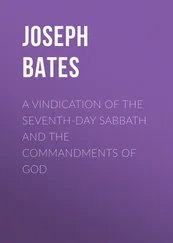Frederick Rolfe - Hadrian the Seventh
Здесь есть возможность читать онлайн «Frederick Rolfe - Hadrian the Seventh» — ознакомительный отрывок электронной книги совершенно бесплатно, а после прочтения отрывка купить полную версию. В некоторых случаях можно слушать аудио, скачать через торрент в формате fb2 и присутствует краткое содержание. Жанр: unrecognised, на английском языке. Описание произведения, (предисловие) а так же отзывы посетителей доступны на портале библиотеки ЛибКат.
- Название:Hadrian the Seventh
- Автор:
- Жанр:
- Год:неизвестен
- ISBN:нет данных
- Рейтинг книги:5 / 5. Голосов: 1
-
Избранное:Добавить в избранное
- Отзывы:
-
Ваша оценка:
- 100
- 1
- 2
- 3
- 4
- 5
Hadrian the Seventh: краткое содержание, описание и аннотация
Предлагаем к чтению аннотацию, описание, краткое содержание или предисловие (зависит от того, что написал сам автор книги «Hadrian the Seventh»). Если вы не нашли необходимую информацию о книге — напишите в комментариях, мы постараемся отыскать её.
Hadrian the Seventh — читать онлайн ознакомительный отрывок
Ниже представлен текст книги, разбитый по страницам. Система сохранения места последней прочитанной страницы, позволяет с удобством читать онлайн бесплатно книгу «Hadrian the Seventh», без необходимости каждый раз заново искать на чём Вы остановились. Поставьте закладку, и сможете в любой момент перейти на страницу, на которой закончили чтение.
Интервал:
Закладка:
"Explain, my son."
"I live between two churches: the one is half an hour away: the other, a quarter—"
"Have you been obliged to live where you do?"
"Yes; as far as one is obliged to do a detestable inconvenient thing. I did not choose the place. A false friend enticed me there, absconded with some papers of mine and obliged me to stay there, and rot there—"
"Continue, my son."
"When I am well disposed, I go to the distant church. When I am lazy, I don't go at all— this only refers to holidays:— because at the near one I should have to encounter the scowls of a purse-proud family who knew me when I was well-off, and who glare at me now as though I committed some impertinence in using a church which they have decorated with a chromolithograph. Also I detest kneeling in a pew like a protestant, with somebody's breath oozing down the back of my collar. I can hear Mass with devotion as well as with æsthetic pleasure in a church which has dark corners and no pews. I've never seen one in this country where I can be unconscious of the hideous persons and outrageous costumes of the congregation, the appalling substitute for ecclesiastical music, the tawdry insolence of the place, the pretentious demeanour of the ministers. Things like these distract me; and sometimes keep me away altogether. I like to worship my Maker, alone, from a distance, unseen of all save Him. You see, among the laity, I am as a fish out of water: because I am a clerk, whose place is not without but within the cancelli. However, I confess that I habitually more or less am guilty of neglect of duty, on grounds which I know to be fantastic and sensuous and indefensible. I confess that I have used irreverent expletives, such as O my God and Damn. Not very often.... I confess that I am imperfectly resigned to the Will of God. I very often think that I do not know and cannot know what is God's Will. I generally follow my instincts: not, of course, when I know them to be sinful. I generally resist those. But, in planning my life, in trial, when I really want to know God's Will, I have no test which I can apply to the operations of my intellect. I am not alluding to dogma. I implicitly take that from the Church. I mean life's little quandaries. Years ago, I used to consult my confessor. I never got an apt or an illuminating or even an intelligent response. Time was short: there were a lot of people waiting outside the confessional: or His Reverence had been interrupted in the middle of his Office. An inapplicable platitude was pitched at me; and of course I went away in a rage. Later, I grew to think that a man ought not to shirk his personal responsibility: that he ought to be prepared to decide for himself and face the consequence. I gave up consulting the clergy, except upon technical points. I do my best, by myself; and I pray God to be merciful to my mistakes. I earnestly desire to do His Will in all things: but I often fail. For example, I can't stand pain. It makes me savage, literally. I don't bear chastisement submissively. I confess all my failures. I was lacking in filial respect towards my parents. I have been irreverent and disobedient to my superiors. I have argued with them, instead of meekly submitting my will to theirs. I have given them nicknames, labels that stick, that annoy them by revealing mental and corporeal characteristics of which they are not proud. For example, I said that the violet legs of my college-rector were formed like little Jacobean communion-rails; and I nicknamed a certain domestic prelate the Greek for Muddy-Mind, βoρβoρoθυμoς. I haven't done these things out of really vicious wanton cruelty: but out of pride in my own powers of penetration and perception, or out of culpable frivolity. I confess that I have been wanting in love, patience, sincerity, justice, towards my neighbour. Selfishness, self-will, and a fatuous desire to be distinct from other people, have caused these breaches of God's law. That desire nearly always is unconscious or subconscious: seldom deliberate. I am unkind with my bitter tongue and pen: for example, I made a jibe of the scrofula of a publisher. I am impatient with mental or natural weakness: for example, I brought tears into a schoolboy's eyes by my remarks when he recorded Edward III's words to Philippa in reference to the six burgesses of Calais as 'Dam, I can deny you nothing, but I wish you had been otherwhere.' I am insincere, sinfully not criminally. I mean that I delight in bewildering others by posing as a monument of complex erudition, when I really am a very silly simpleton. I am unjust, in my readiness to judge on insufficient evidence: by my habit of believing all I hear,— that's a tremendously salient fault of mine:— and by telling or repeating detrimental stories. I confess the sin of detraction. I have told improper stories: not of the ordinary revolting kind, but those which are exquisite or witty or recondite. The koprolalian kind, those which are common in colleges and among the clergy, I have had the injustice to label Roman Catholic Stories. If it were necessary to designate them with particularity, the classic epithet Milesian would serve: but it is never necessary. I have not often offended in this way: but now and then, according to the company in which I have happened to be. I confess that I have sinned against myself— for example, I have not avoided ease and luxury. I have only been too glad to enjoy them when they came in my way. I have been fastidious in my person, my tastes, my dress, affecting delicate habits, likes, and dislikes. I hate getting up early in the morning; and do it with a bad grace. I am dainty in my diet. I never have conquered my natural antipathy to flesh-meat, especially to entrails such as sweet-breads and kidneys. I abhor fish-meat on account of its abominable stench. Formerly, I never would sit at a table where fish-meat was served. I can do that now, with an effort of will: but I could not eat fish without physical nausea. I never will eat it. Once I made a man sick by the filthy comparison which I used in regard to some oysters which he was about to eat.... I have not avoided dangerous occasions of sin: I have not been prompt to resist temptation. For example, my desire to improve my knowledge leads me to minute appreciation and analysis of everything which interests me. In regard to the fine arts, I study the nude, human anatomy, generally with no emotion beyond passionate admiration for beauty. I never have been able to find beauty shameful: ugliness, yes. In regard to literature, I have read prohibited books and magazines— the Nineteenth Century , and books ancient and modern which are of a certain kind. My motive always has been to inform myself. I perfectly have known into what areas of temptation I was straying. As a rule, no effect has been produced on me, save the feeling of disgust at writers who write grossly for the sake of writing grossly, like Straton, or Pontano. I confess that two or three times in my life I have delighted in impure thoughts inspired by some lines in Cicero's Oration for M. Coelius: and, perhaps half a dozen times by a verse of John Addington Symonds in the Artist. I confess that I have dallied with these thoughts for an instant before dismissing them. There is one thing which I never have mentioned in confession to my satisfaction. I mean that I have mentioned it in vague terms only. I have not felt quite sure about it. I know that I cannot think of it and of the stainless purity of the Mother-Maid at the same time. Hence I conclude that I am guilty—"
"Relieve your mind, my son."
"About fourteen years ago, I dined with a woman whose husband was a great friend of mine. Her two children dined with us— a girl of fifteen, a boy of thirteen. Her husband was away on business for a few months. Soon after dinner, she sent the children to bed. A few minutes later she went to say goodnight to them: she was an excellent mother. I remained in the drawing-room. When she returned, I was standing to take my departure. As she entered, she closed the door and switched off the electric light I instinctively struck a match. She laughed, apologising for being absent-minded. I said the usual polite idioms and went away. A fortnight later, I dined there again by invitation. All went on as before: but this time, when she came back from saying goodnight to the children she was wearing a violet flannel dressing-gown. I said nothing at all; and instantly left her. Afterwards, I gave her the cut direct in the street. I never have spoken to her since. Her husband was a good man, a martyr, and I immensely admired him. He died a few years later. I have no feeling for her except detestation. She was wickedly ugly. Vague thoughts ensued from these incidents; thoughts not connected with her but with some sensuous idea, some phasma of my imagination. They never were more than thoughts. I think that I must have delighted in them, because they returned to me perhaps twelve or fourteen times in as many years. I confess these sins of thought. Also, I think that I ought to confess myself lacking in alacrity after the first switching off of the electric light; and that I never ought to have remained alone with that woman again. I was ridiculously dense: for, only after the second event, did I see what the first had portended. I confess that I have not kept my senses in proper custody. I place no restraint whatever upon sight, hearing, taste, smell, touch, except in so far as my natural sympathies or antipathies direct me. I cultivate them and refine them and sharpen them: but never mortify them. I hardly ever practise self-denial. Even when I do, I catch myself extracting elements of æsthetic enjoyment from it. For example, I was present at the amputation of a leg. Under anæsthetics, directly the saw touched the marrow, of the thigh bone, the other leg began to kick. I was next to it; and the surgeon told me to hold it still. It was ghastly: but I did. And then I actually caught myself admiring the exquisite silky texture of human skin.... Father, I am my Master's most unfaithful servant. I am a very sorry Christian. I confess all these sins, all the sins which I cannot remember, all the sins of my life. I implore pardon of God; and from thee, O Father, penance and absolution. Therefore I beseech blessed Mary Ever-Virgin, blessed Michael Archangel, Blessed John Baptist, the Holy Apostles Peter and Paul, all Saints, and thee, O Father, to pray for me to The Lord our God."
Читать дальшеИнтервал:
Закладка:
Похожие книги на «Hadrian the Seventh»
Представляем Вашему вниманию похожие книги на «Hadrian the Seventh» списком для выбора. Мы отобрали схожую по названию и смыслу литературу в надежде предоставить читателям больше вариантов отыскать новые, интересные, ещё непрочитанные произведения.
Обсуждение, отзывы о книге «Hadrian the Seventh» и просто собственные мнения читателей. Оставьте ваши комментарии, напишите, что Вы думаете о произведении, его смысле или главных героях. Укажите что конкретно понравилось, а что нет, и почему Вы так считаете.











